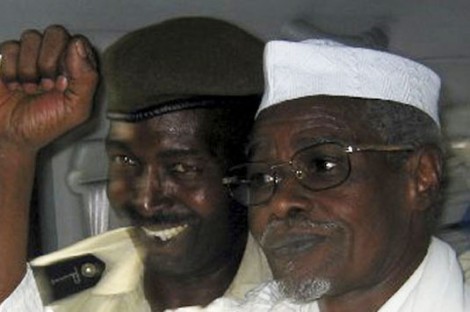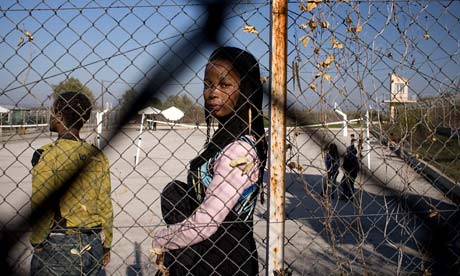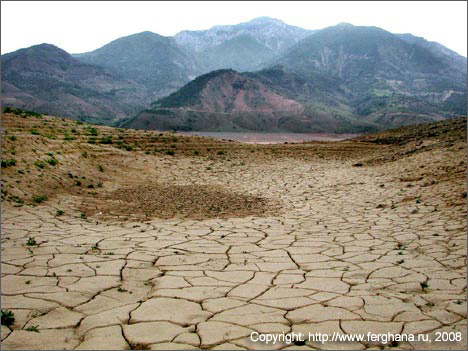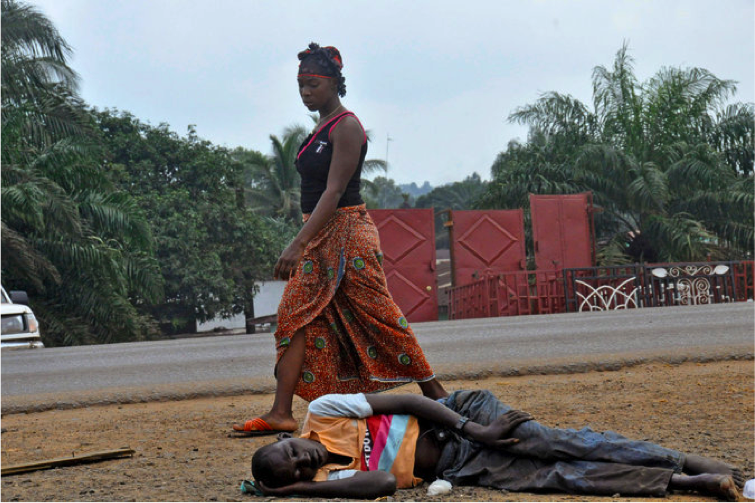The former leader of Chad, Hissène Habré, was arrested last week in Senegal and will face trial for alleged crimes committed during his tenure as President of the impoverished North African country. Dubbed “Africa’s Pinochet,” the rebel commander turned President may, if prosecution is successful, join fellow African dictator Charles Taylor and be convicted of war crimes. So, who is Hissène Habré and what makes him so bad?
Rise and Rule
Habré was born to a family of Toubou herders in the north of Chad. He obtained a degree in political science in France before returning to work as a government official. Sent to negotiate with a rebel faction in the north, he was drawn to their national liberation ideology and joined their army. After leaving the rebel front in 1976, Habré returned to politics and was named Prime Minister in a government of national unity. He lost his post when the coalition fell in the 1979 elections.
[captionpix align=”right” theme=”elegant” width=”370″ imgsrc=”http://justiceinconflict.files.wordpress.com/2011/12/habrc3a9.jpeg?w=640″ captiontext=”Habré during his presidential period”]
In 1982 Habré led a coup against the Chadian government, supposedly with CIA assistance. As President, Habré allegedly ordered thousands of killings and systematically abused human rights. He is accused of targeting ethnic groups unsupportive of his regime, like the Sara, Hadjerai, Chadian Arabs and Zaghawa.
The agency of the alleged abuse was the Documentation and Security Directorate (DDS), responsible for the “Piscine” – a swimming pool-turned torture chamber. Techniques used range from cigarette burns and electric shock, to being placed in a room with decomposing bodies and the infamous “supplice des baguettes” (death by sticks).
On the 1st of December, 1990, Habré was deposed by current President Idriss Deby Itno. A 1992 Commission of Inquiry charges him of “murdering in cold blood” all the political prisoners at the Presidential Palace upon his ousting, after which he fled to Cameroon, and then Senegal, where he remains.
Facing the Music
On June 30 of this year, Habré was placed under arrest by order of Senegal’s government. After successive campaigns by human rights activists, Senegal set up a special court to try the former President. If the prosecution is successful, it will be a landmark case since, until now, African leaders have only been charged in international courts.
The case against Habré has been years in the making. In January 2000, a Senegalese court indicted Habré on charges of torture and crimes against humanity. Six months later, Senegal’s President Wade removed the judge who indicted Habré. Wade then promoted the president of the Appeals Court addressing Habré’s case to the vacant position. Less than a week later, the Appeals Court ruled Senegal had no jurisdiction to prosecute the ex-President. Although these proceedings frustrated campaigners, they obtained a 2005 indictment for torture and crimes against humanity under the Belgium’s universal jurisdiction laws. Senegal however, refused to extradite the ex-leader.
Under pressure from several leaders and organizations, including the UN Secretary General, the EU, the UN Committee Against Torture and Human Rights Watch, in 2006 Senegal finally accepted the African Union’s invitation to prosecute Habré “on behalf of Africa.” This was accompanied by the election of President Mack Sall in Senegal, who determined a plan with the African Union to set up a special court.
‘On Behalf of Africa’
Habré could have been returned to Chad years ago, where a court sentenced him to death in absentia on unrelated charges. This proposal was rejected in response to protests from human rights advocates. Instead, he will go before the specially-formed Extraordinary African Chambers inaugurated this February. Scheduled to begin trial in 2014 or 2015, the court will be housed inside the Dakar court system, and has an investigative section, indicting, trial and appeals chambers. Both the trial and appeals chamber will contain a mixture of judges and a president from another African state.
This process is, at least rhetorically, wholly owned by the African Union (AU). The AU’s agreement with Senegal states that ‘it’s the honour of the African Union’ to ‘write a new page in international law’ by trying one of their own. This may satisfy some who argue the International Criminal Court (ICC) and other international justice mechanisms are biased against Africans.
Similar arguments are made by those who say the court is a means for the West to impose its will on Africans, but others see such arguments as self-interested rhetoric. The former prosecutor for the Special Court for Sierra Leone, Abdul Tejan-Cole, points to the inconsistency of supporters of former president of the Ivory Coast Laurent Gbagbo. Originally supportive of the ICC so it could prosecute rebels, they changed their tune after Mr. and Mrs. Gbagbo’s 2011 indictment.
On the other hand, the West will bankroll most of the process. The EU together pledged €4.4 million, Chad committed $3.7 million and the US $1million to the Extraordinary African Chambers, while Senegal will pick up the remaining costs of the $9.7 million budget. It’s fair to question the proclaimed African nature of a trial mostly funded by Western donors.
At the same time, the Habré trial illustrates the end of impunity for crimes committed by leaders against their own people. In recent years, Alberto Fujimori and Isabel Péron have both been subject to extradition request from Peru and Argentina, respectively. From Pinochet to Milosevic, Jean Kambanda and now Hissène Habré there is a clear trend towards holding heads of state accountable.
Despite the role of the West in funding the special court, it is significant that the African Union supports an end to the carte blanche enjoyed by former dictators on their continent. It is a step away from the ‘Dictator Club’ reputation the AU’s predecessor, the Organization of African Unity, cultivated. Even more commendable is that it will take place in a Sub-Saharan country. The process is an important step in the application of global human rights standards. Most importantly, it reminds would-be tyrants they are not above the law, no matter where they go.




